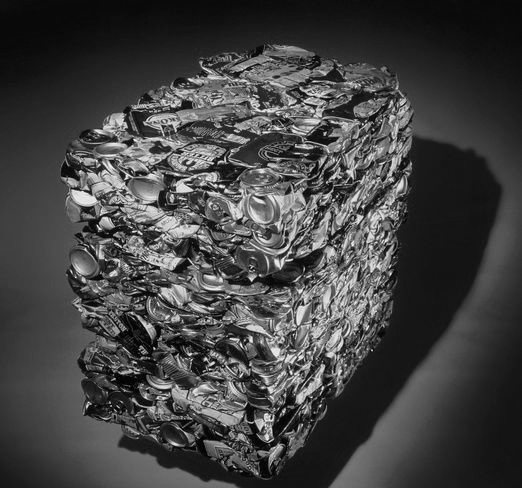Aluminium can be found everywhere. We see it in beer cans, soft drink cans, pie plates, packaging, foil, gutters, vinyl siding, and more. What most people don’t realize is that aluminum is all but the perfect recyclable material. Out of the most ordinary recyclable materials that clutter up our landfills— paper, glass, metals, plastics, cardboard —aluminum is the only material that’s incessantly recyclable, 100% recyclable, and which pays for itself.

Because of its usefulness, aluminum lends itself to plentiful applications. In fact, it is the second-most used metal next to steel, with an annual major production reaching 24.8 million tons in 2007. Much of that output goes to the 187 billion aluminum cans manufactured worldwide. The automotive industry is aluminium’s fastest-growing market. Making car parts out of aluminum — everything from wheel rims to cylinder heads, radiators and pistons — makes a car lighter, plummeting fuel expenditure and pollution levels. By some estimates, a car having 331 pounds (150 kg) of aluminum would see fuel consumption decreased by 0.43 gallons per 100 miles.
Marvelously, most of the aluminum ever made is still in use these days. That’s because it can be recycled time and again without losing its quality. Most aluminum that gets recycled is taken from one of three sources: parts from old automobiles, used beverage cans and scrap collected during the production of aluminum products. Aluminum can recycling is one of the greatest achievements of the modern sustainability movement.
Aluminum can recycling is a closed-loop procedure, which means the new produce made following the recycling process is the same as the one before. There are basically six steps to closed-loop can recycling:
- Old aluminum cans are brought to an aluminum reclamation plant.
- The cans are then shredded into smaller pieces.
- The pieces are placed into a melting furnace.
- The molten aluminum cools and then hardens into rectangular ingots.
- The ingots are formed into emaciated sheets of aluminum.
- The thin sheets are used to make new aluminum cans.
Much of the novelty in the aluminum industry is related to improving the effectiveness of production and recycling. But the demand for aluminum will only grow as new and stimulating applications emerge.
Thus, it can be said that aluminium recycling not only saves Mother Nature but it also gives you a means of earning money out of what we often consider as useless scraps.
For more info about aluminium recycling services, call Scrap Metal Sydney on (02) 9707 2955.
